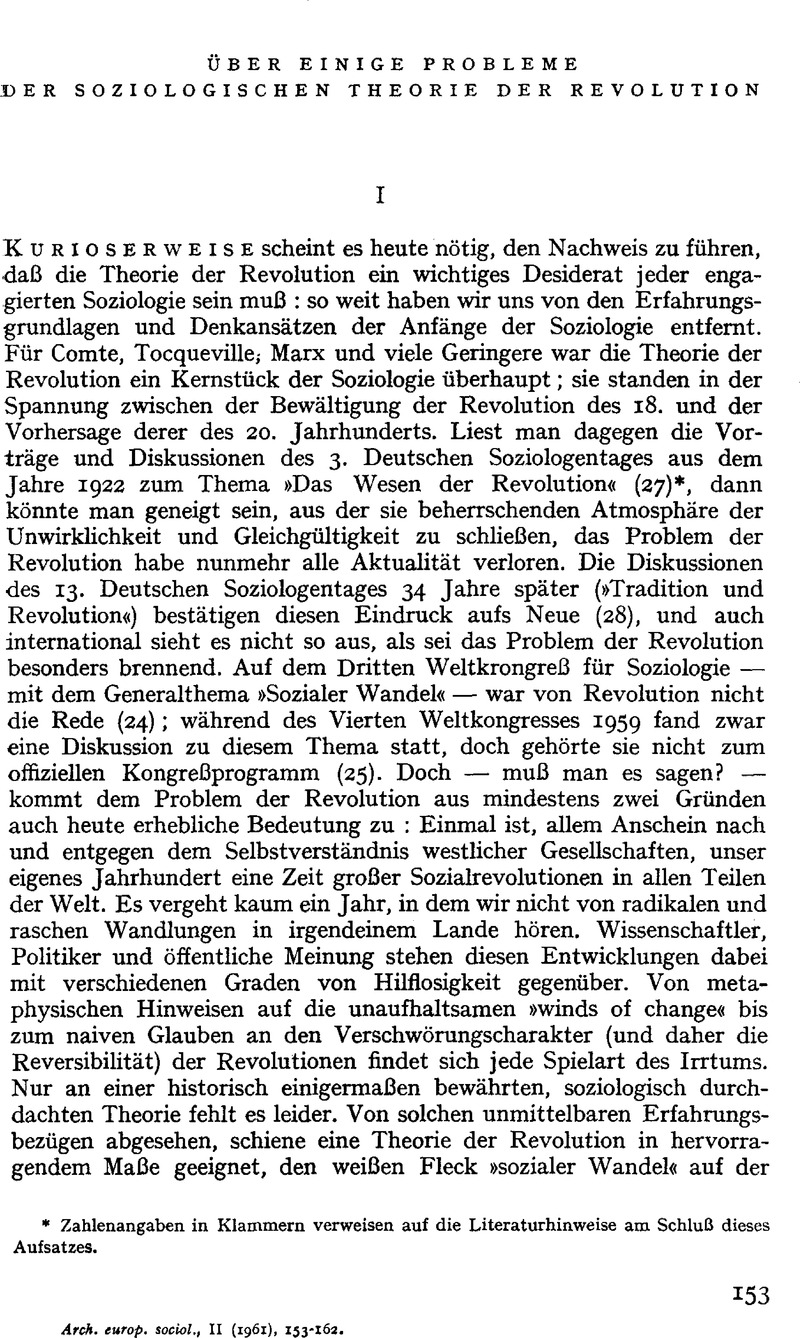Crossref Citations
This article has been cited by the following publications. This list is generated based on data provided by Crossref.
Kantowsky, Detlef
1969.
Aspekte der Entwicklungssoziologie.
p.
219.
Baechler, Jean
1971.
De la fragilité des systèmes politiques.
European Journal of Sociology,
Vol. 12,
Issue. 1,
p.
61.
Tetsch, Hartmut
1973.
Die permanente Revolution.
p.
203.
Eisenstadt, Samuel N.
1982.
Revolution und die Transformation von Gesellschaften.
p.
13.
Lietzmann, Hans J.
1999.
Masse — Macht — Emotionen.
p.
151.



